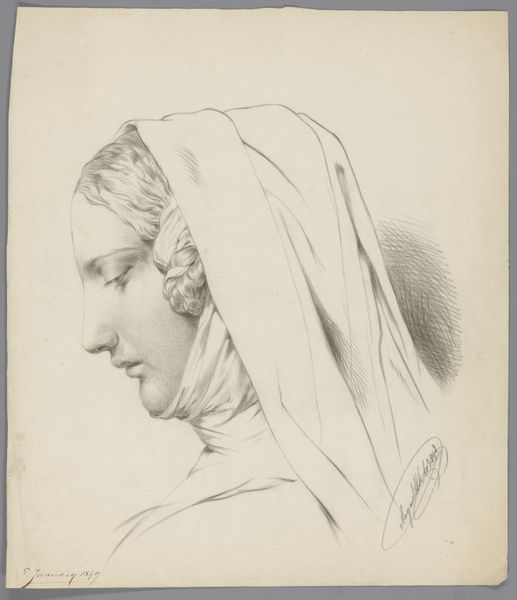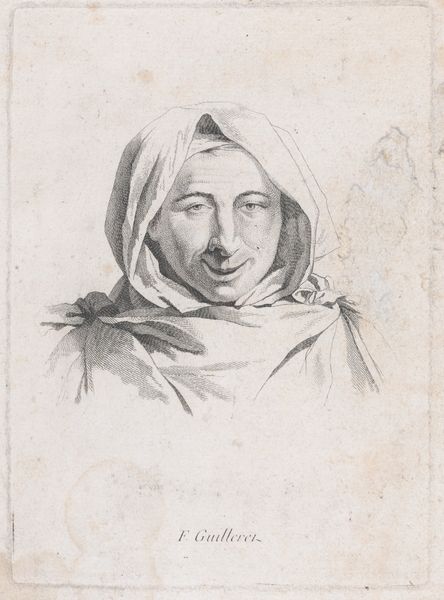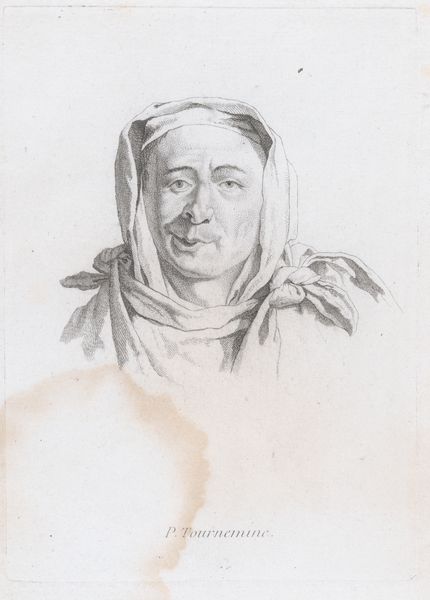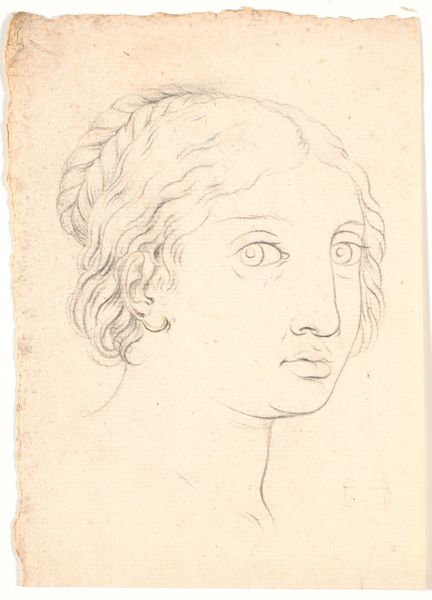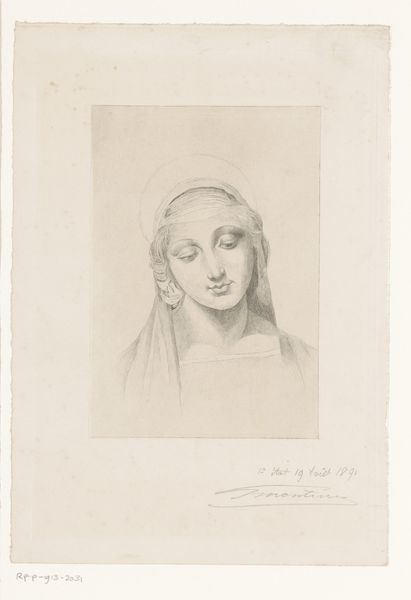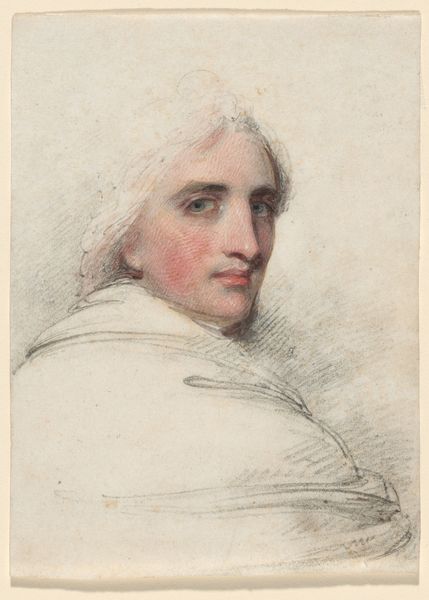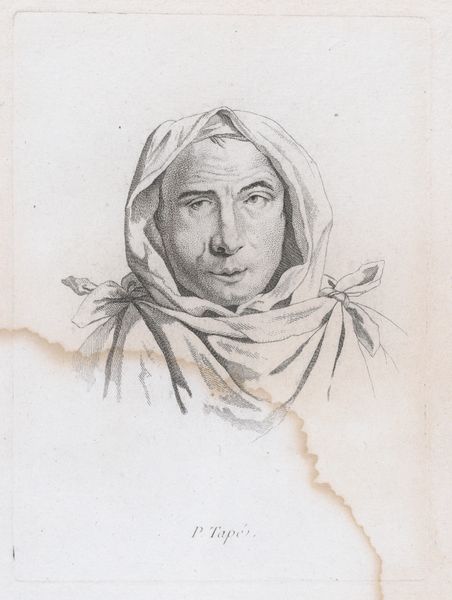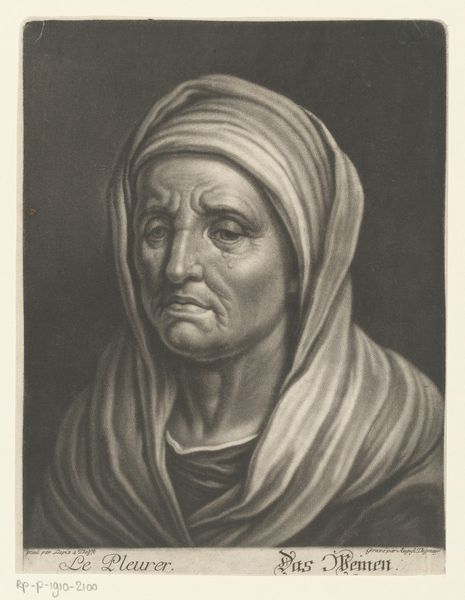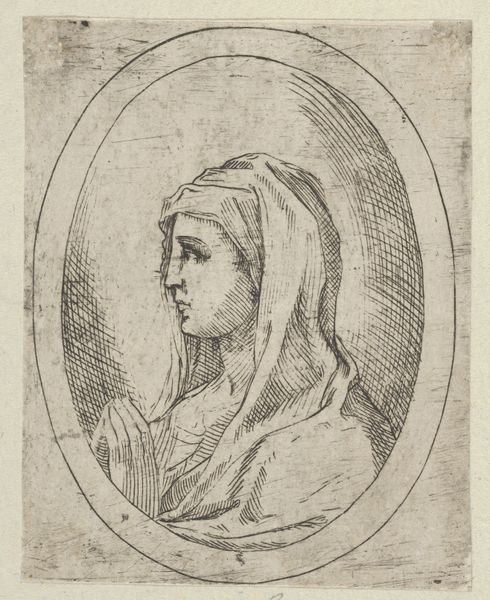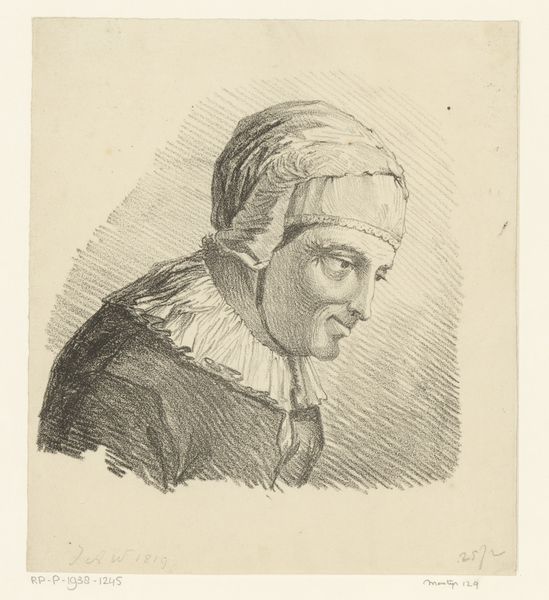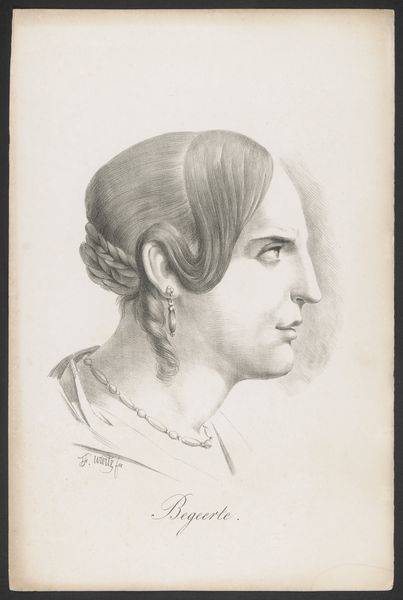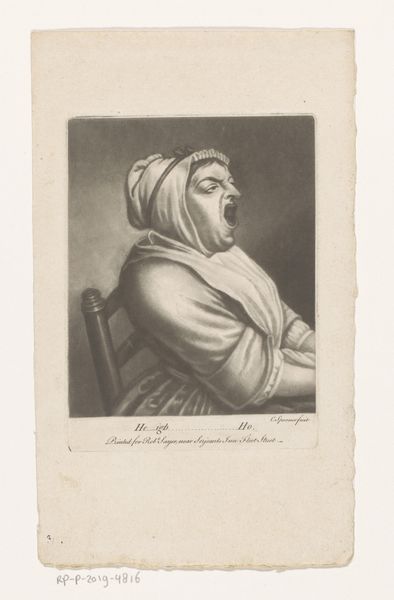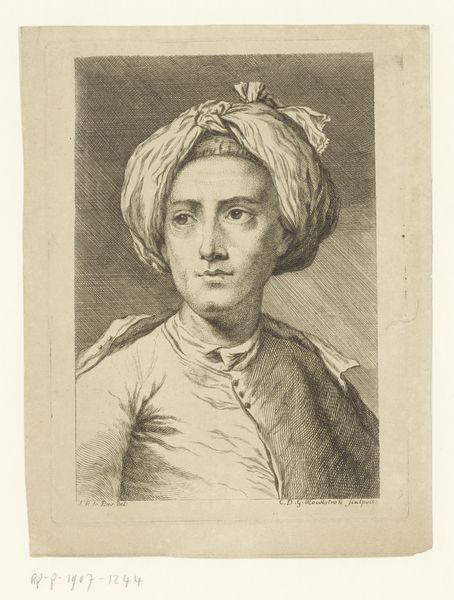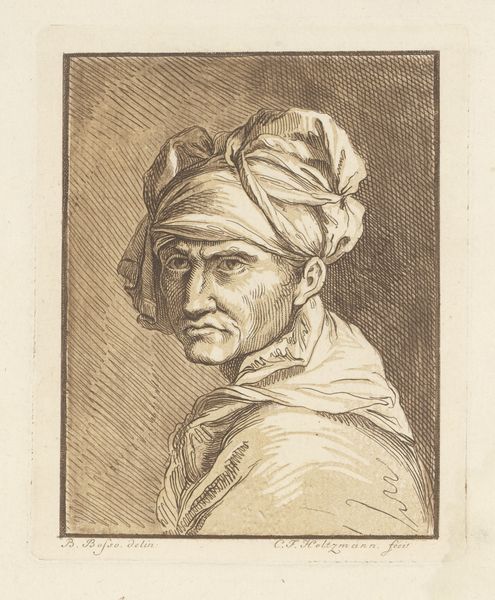
drawing, pencil
#
portrait
#
pencil drawn
#
drawing
#
caricature
#
pencil drawing
#
romanticism
#
pencil
#
portrait drawing
#
history-painting
Dimensions: height 500 mm, width 330 mm
Copyright: Rijks Museum: Open Domain
Editor: Here we have Henricus Franciscus Wiertz's "Portret van man met door pijn vertrokken gezicht," or "Portrait of a man with a pain-stricken face," created in 1847 using pencil. There's such an overwhelming feeling of anguish radiating from this portrait. The head covering, the upward gaze—it’s all so theatrical. What do you see in this piece? Curator: I see a figure bound, literally and figuratively. The head covering isn’t just a covering; it's a symbol of constraint, perhaps societal or internal. Note how the light catches certain folds while obscuring others. Wiertz uses shadow to signify suffering, embedding the cultural memory of mourning, a figure cloaked in visible agony. And what do you make of his averted gaze? Editor: It makes me wonder what he’s looking at or, perhaps, avoiding looking at. Is it hope, despair, or maybe even resignation? Curator: Precisely. The gaze is a powerful symbol, directing not only our sight but also our emotional response. The romantic era fixated on intense feeling as the truest kind of expression. What feelings do *you* feel from looking at this expression, beyond what’s evident? Editor: Hmm...Maybe a deep sense of powerlessness. Like he's trapped by something bigger than himself. Curator: An excellent insight. Powerlessness is a recurring motif throughout art, and how artists have interpreted it changes our understanding of our societies and ourselves. So, what has this exploration unlocked for you? Editor: I think I'll look at portraits in a new way now. To consider them as expressions of shared human experiences rather than just faces frozen in time. Curator: Yes! They hold such stories if we but pause, look closely, and contemplate their lasting impact.
Comments
No comments
Be the first to comment and join the conversation on the ultimate creative platform.
